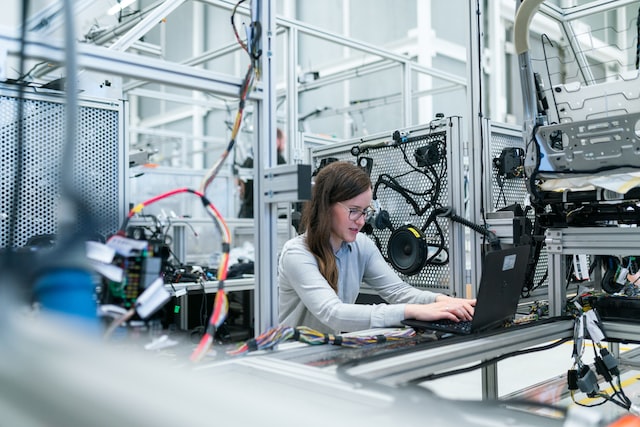Blockchain – is a trending word and probably one that is heard quite often these days. Most of us tend to relate blockchain to currency, but that’s not the only domain where it is used; blockchain is used extensively in the medical and healthcare industry as well. With big data being generated and data breaches always on the verge, blockchain has proved to be a trusted technology in terms of privacy and security. But before diving into any of this, let’s first try to answer a question – what exactly is blockchain?
A blockchain is a distributed system that produces and archives data records and to maintain that you can get help from IT product and services company . It maintains a digital ledger of linked “blocks” of information. Each of these blocks signifies how data is stored, altered, or retrieved in a network. Without digging deep, it is enough to say that it is a decentralized approach, allowing data uniformity to be achieved. Added to this is the concept of “hashing”. Hashing designates each block with an exclusive identifier that changes based on the contents of the block. If the block’s data changes, this will reflect in its hash. Change in one block will cause the subsequent block to recognize a hash change. This ensures paramount accountability, and therefore, it is impossible to manipulate or misrepresent data. Because of this, connected blocks form a “chain”, securely fashioned in a decentralized manner. Since falsifying data is not possible, this helps vastly with the interchange, storage, and retrieval of data within a network.
Table of Contents
APPLICATIONS IN HEALTHCARE
Keeping medical data secure, protected, and confident is the most widespread blockchain use in the healthcare industry today. With data being generated in huge amounts, data breach is always a possibility. Between 2009 and 2017, more than 176 million patient records were leaked. Blockchain technology helps prevent this. It is a dual system, both transparent and private. It hides the identity of individuals, protecting the sensitivity of medical data. But at the same time, it allows patients, practitioners, and providers to share confidential information safely and efficiently.
REMOTE PATIENT MONITORING & MOBILE HEALTH APPS
Blockchain technology is also a part of certain mobile health apps and remote patient monitoring. Mobile health applications are increasingly being used globally – a probable side effect of the pandemic. Though mobile applications help greatly with patient care and satisfaction, they are particularly sensitive to malware. However, with blockchain, records are secured and the data can be transmitted to medical professionals without any data leakage.
SUPPLY CHAIN
During the transportation of medicines, blockchain can help secure, and also detect the journey of these pharmaceutical supplies. In fact, a couple of companies are utilizing blockchain to even monitor the level of carbon emissions in transportation.
MEDICAL INSURANCE
Health insurance companies especially use a blockchain because of its unique ability to represent medical events and data as they have occurred, without the likelihood of manipulating the data for fraud at a later stage.
PROTECTION OF GENOMIC DATA
Blockchain so far has not been used for safeguarding genomics, but it has the potential for protecting genomic data. With a surge in DNA sequencing and mapping, genomic data theft has become a concern. But if blockchain technology is implemented, it can encourage the secure exchange of information and eliminate middlemen.
Blockchain technology has increased over the years and will continue to do so. It has penetrated quite a few sectors, including healthcare, and triggered developments in terms of data privacy and security. We have probably not reached blockchain’s full potential and there are clearly numerous more ways in which this technology can be utilized. One thing is for certain – we’ll be seeing a lot more of blockchain in the future, especially in healthcare.















